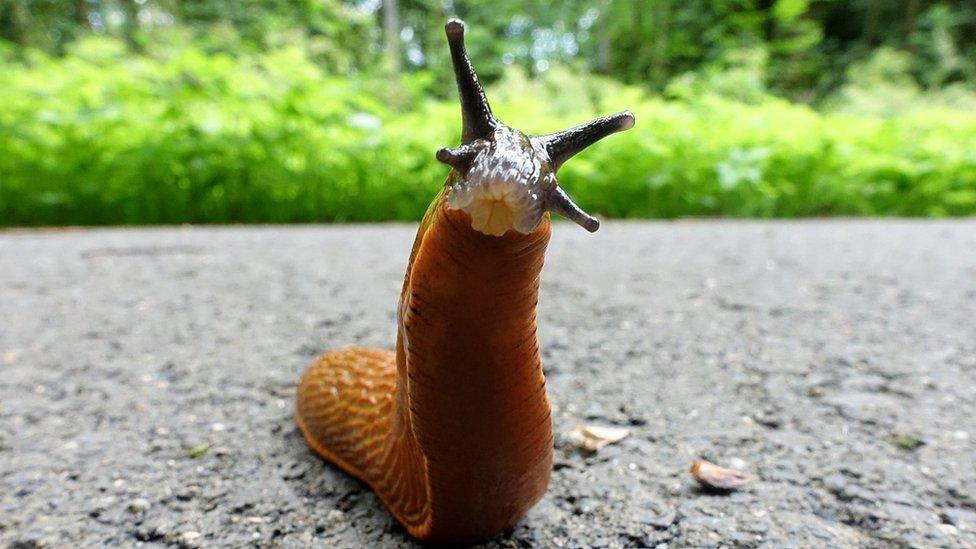Forget snail mail, scientists want people to post slugs
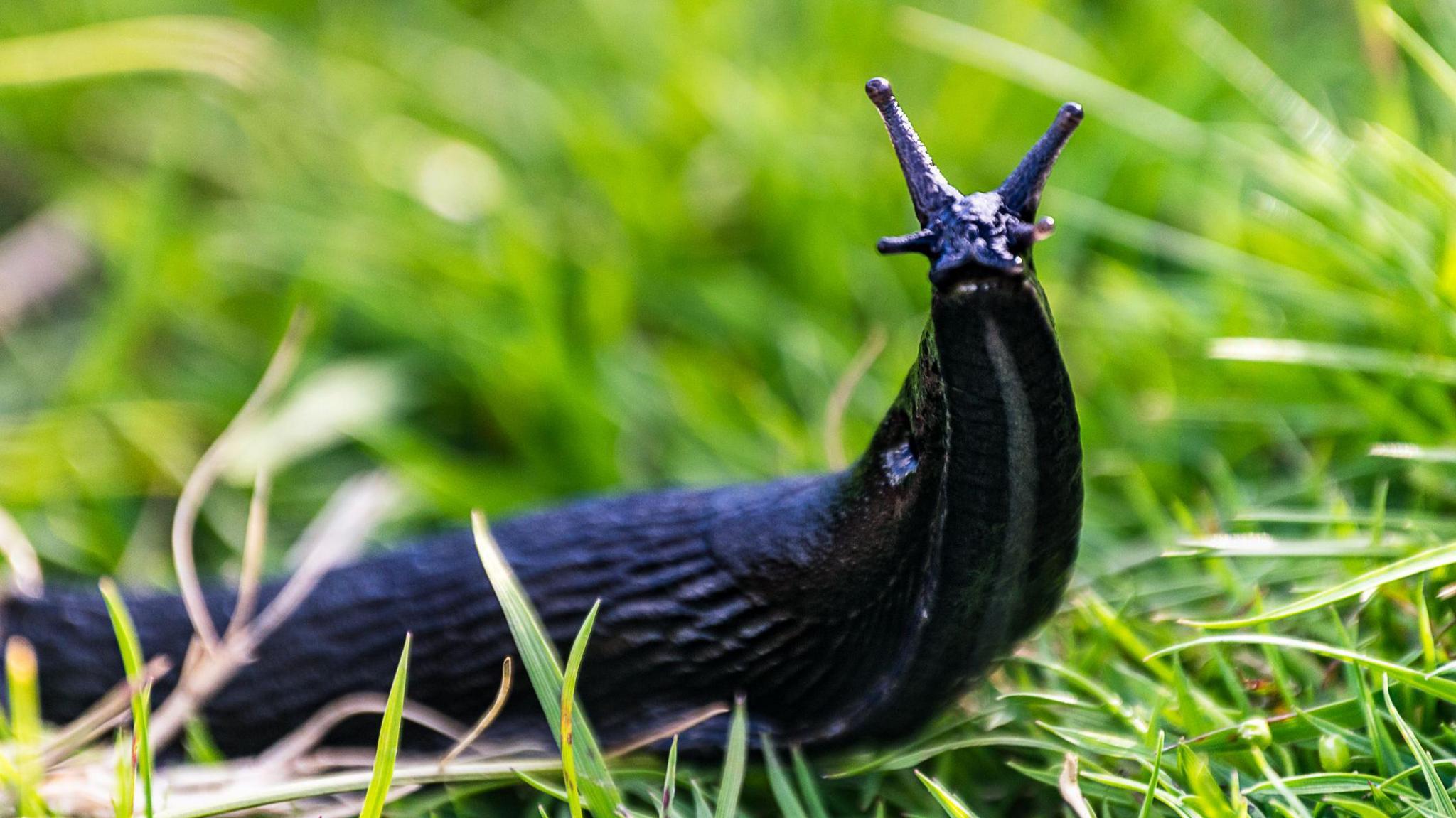
Going postal! Scientists are asking for people to post slugs to them to study
- Published
A slug might not be the first thing you'd think of when asked what you'd like to receive in the post... But a team of scientists are asking for exactly that.
The researchers say they need around 1,000 slugs to study what kind of crops they prefer to eat and are asking members of the public to mail them.
It's all part of new research into how they can make crops like wheat more slug-resistant.
This research is part of a three year project, with the catchy title of Strategies Leading to Improved Management and Enhanced Resilience against Slugs (or 'Slimers' for short).
It began in 2023 and is paid for by the government's Department for Environment, Food and Rural Affairs.
Slugs: The rebels lurking in your garden
'Save our slugs', say UK wildlife charities
- Published11 March 2024
'Ready, steady, slow!' Snails prepare for world championship
- Published8 July 2024
Cheeky snails caught munching on mail
- Published26 October 2023
Not any old slug will do!
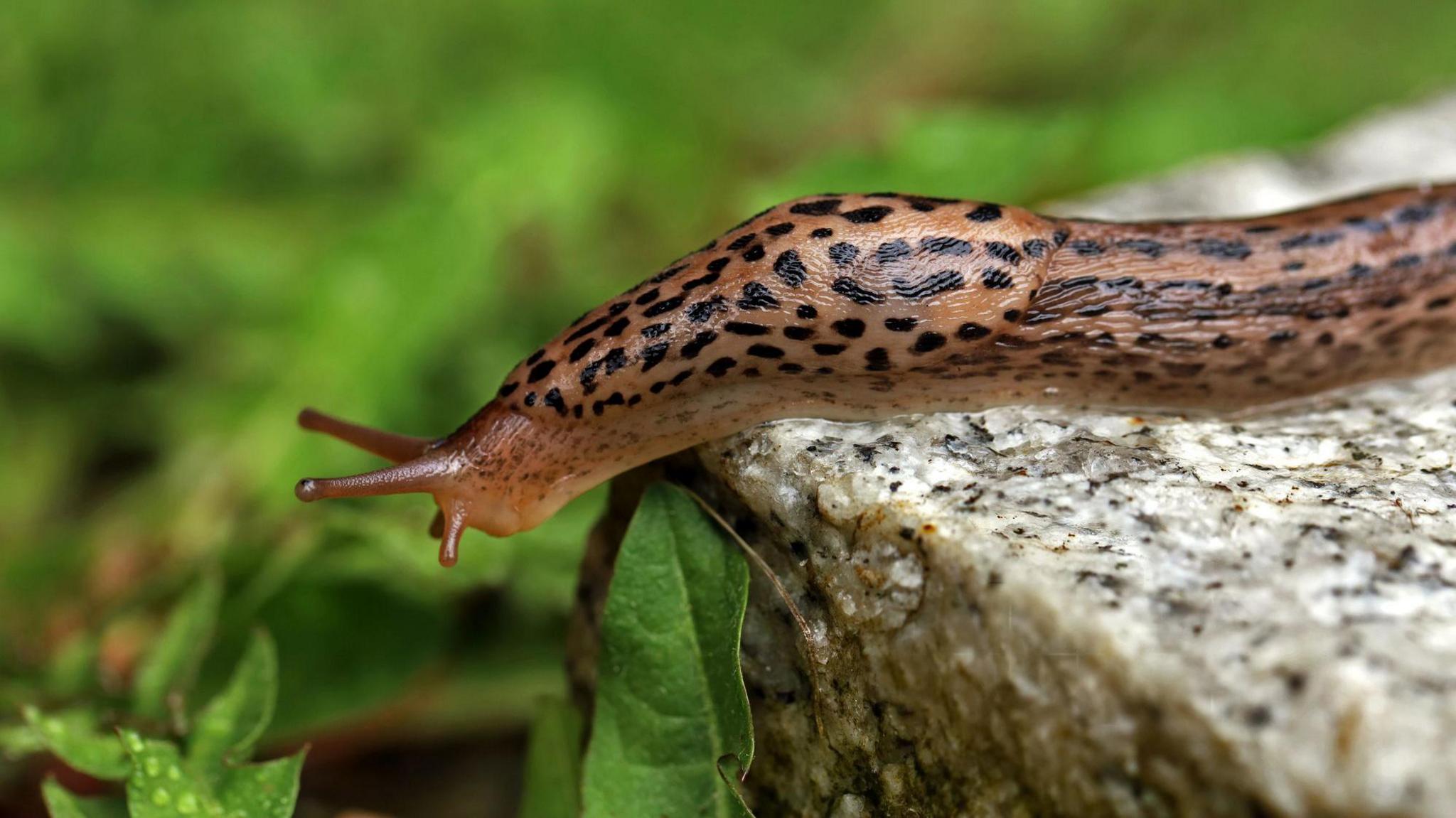
The scientists have said to NOT post leopard slugs, like this one - as they eat other slugs!
The scientists have said that they're after a particular type of slug that is commonly found eating plants around farms.
“The ones that we’re specifically looking for are grey field slugs: they’re the ones that are the agricultural pests,” said Tom Allen-Stevens, who is part of the team leading the research.
The slug experts are asking people to sign up for “slug scout” packs, which include a container for safe transport, a guide for how to spot and attract slugs, and a paid-for postage envelope.
However, the scientists have said it's important to avoid sending-in some species of slug.
“There is a slug called the leopard slug,” Tom Allen-Stevens said. “And if you come across that for heaven’s sake don’t send it in, because they eat other slugs.”
They also recommend not posting the slugs at the end of the week or near a bank holiday to avoid a delay to delivery.
What's the problem with slugs?
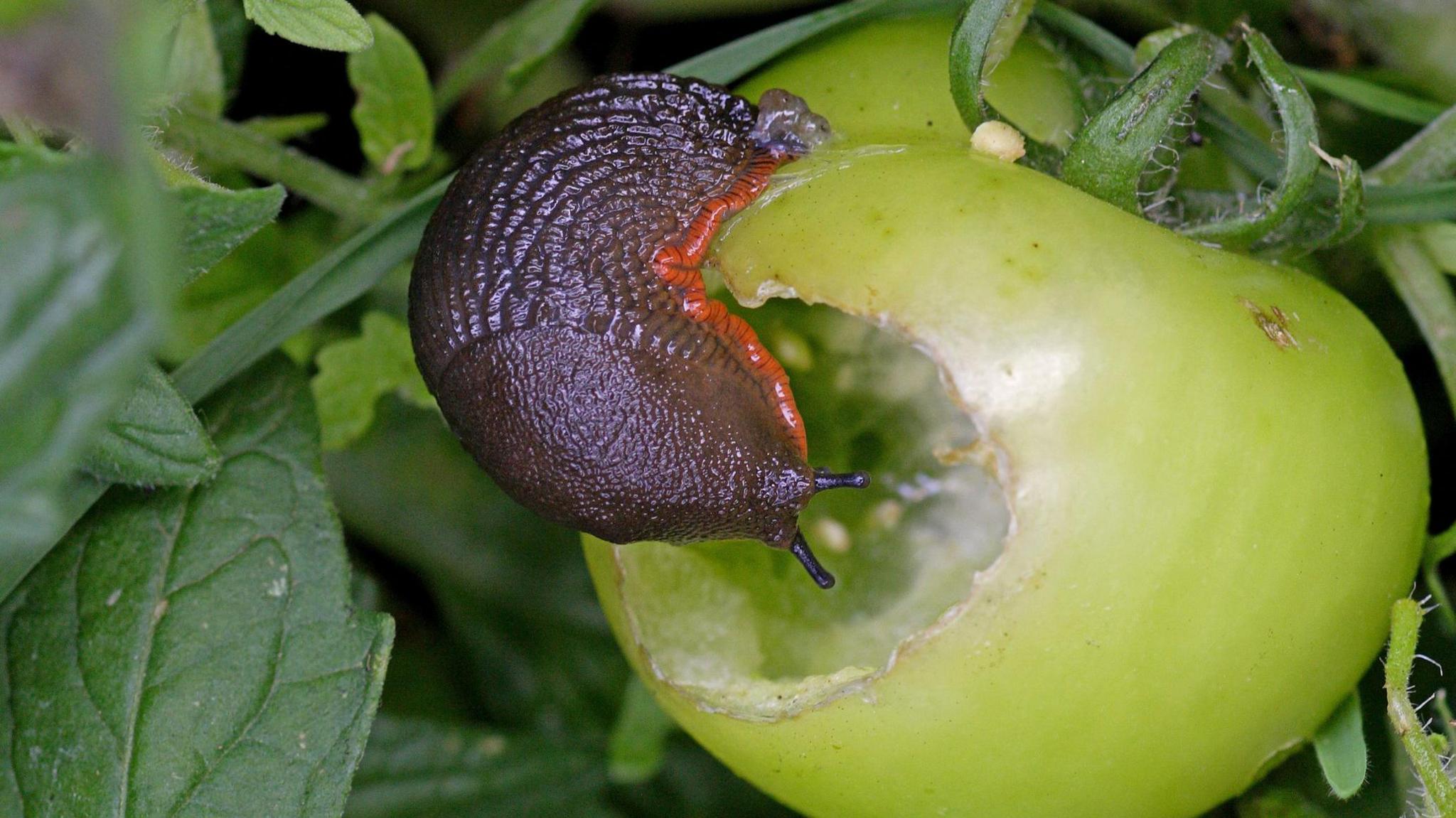
Slugs can cause problems for farmers
According to research from Slimers, slugs are responsible for around £43.5m worth of damage to crops like wheat and oilseed rape every year in the UK.
Which can mean less food for farmers to sell, or on shelves in supermarkets for the public to buy.
A chemical called metaldehyde was used in slug control products in the UK, but was banned in 2022 "to better protect wildlife and the environment", so the farming industry is looking for different ways to help control slugs.
From this research they're hoping to get better at identify slug hot-spots, where the slugs are more likely to pop-up, and create plants that are more slug-resistant, or less tasty to slugs.
Slugs aren't all bad though, along with snails they play an important role in the UK's ecosystem, as they eat decaying plants, fungi and even poo, and help add nutrients back into the soil.
"Come with us on a slug safari!"
- Published28 March 2024
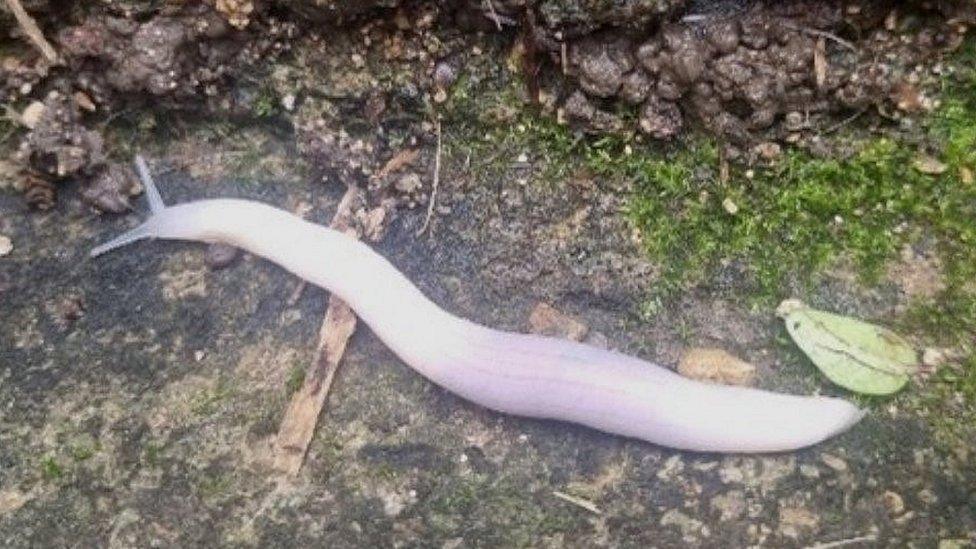
- Published2 October 2019
